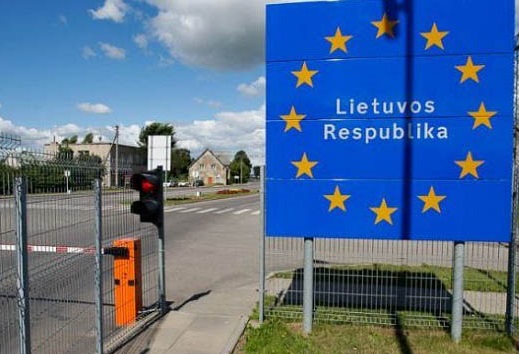Lithuania warns of confiscation of Russians' own cars upon entry
Both cars registered in Russia and those with Russian license plates will be subject to confiscation, the government said

Lithuanian customs will start confiscating Russian cars upon entry into the country in accordance with the latest recommendations of the European Commission, said the head of the republic's Interior Ministry, Agne Bilotaite, Interfax reports.
"Those cars that are registered in Russia should be confiscated if they enter Lithuania, and this control will be ensured by the customs authorities, because this is their function, this is the work and responsibility of the customs authorities," Bilotaite said.
Both cars registered in Russia and those with Russian license plates will be subject to confiscation, said Deputy Foreign Minister Jovita Neliupšienė.
This rule will apply not only to Russians but also to all EU citizens. However, it will not affect those who transit through Kaliningrad and provide the necessary documents in this case.
Since the European Commission issued this clarification last Friday, September 8, it should be applied immediately, Neliupšienė emphasized.
At the same time, Lithuanian Foreign Minister Gabrielius Landsbergis promised to continue consultations with the European Commission on the confiscation of cars and personal belongings from Russians. He explained that the country's situation is exceptional – Russian citizens have the right to travel to Kaliningrad and back through its territory.
Meanwhile, at the Latvian border control, a BBC correspondent was told that there would be "no problems" because of Russian license plates.
The Estonian border checkpoint of Luhamaa also assured that they were letting cars with Russian license plates through.
Finland also decided not to follow the recommendations of the European Commission. "Cars with Russian license plates can still enter Finland. If a different decision is made, we will announce it in advance," said Pia Sarivaara, head of the sanctions department of the Ministry of Foreign Affairs (quoted by Yle).
The European Commission's explanation of the sanctions against Russia stated that the import of personal cars and personal belongings (the list includes more than 150 items, including smartphones, laptops, suitcases and shampoos) into the EU is prohibited. Later, the European Commission clarified that the list is advisory in nature, and EU countries can decide for themselves whether to confiscate items from Russians or not.
If you have read this article to the end, we hope that means it was useful for you.
We work to ensure that our journalistic and analytical work is of high quality, and we strive to perform it as competently as possible. This also requires financial independence. Support us for only UAH 196 per month.
Become a Mind subscriber for just USD 5 per month and support the development of independent business journalism!
You can unsubscribe at any time in your LIQPAY account or by sending us an email: [email protected]



